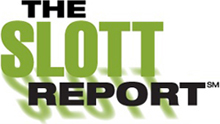You’ve had "the conversion talk" and have decided that a Roth conversion is in your best interest. Now you have a choice ... should you convert your existing 401(k) money to a Roth 401(k) - your plan must have adopted this voluntary feature in order for you to do so - or should you make a conversion to a Roth IRA? While on the surface these two types of accounts are very similar - they both, for example, offer the prospects of tax-free growth and future distributions - there are a number of subtle, and not so subtle, differences that may make one type of conversion far more beneficial for you than the other. With that in mind, here is a summary of some of the most important factors to consider when making this decision:

Key Benefits of Converting to a Roth IRA
- The Ability to Recharacterize - If you convert IRA funds to a Roth IRA and are unhappy with your conversion for any reason, you can recharacterize that conversion as late as October 15 of the year following the calendar year you converted. The word “recharacterize” is really just fancy tax-lingo for “undo.” Think of it as the tax version of the Ctrl+Z function on your computer. Should you end up recharacterizing your Roth IRA conversion, it’s treated as if the conversion never took place, eliminating the resulting tax bill. Common reasons to recharacterize a Roth IRA conversion include a drop in value of the account after converting, an inability to pay the resulting tax bill and simply a change of heart. If, on the other hand, you plan on converting plan assets to a Roth 401(k) or similar account (an in-plan conversion), you’d better double triple check and make sure you’ll have the money to pay the tax bill. There is no recharacterization option for in-plan conversions. Period. End of story. Once you take the leap, there’s no going back and the resulting tax bill is going to have to be paid one way or another. Owing money to any creditor is no fun, but outside of say, Tony Soprano, the IRS might be the worst creditor to have. Even going bankrupt won’t help you get out of that debt.
- No RMDs - One of the biggest benefits of a Roth IRA is that there are no RMDs (required minimum distributions) during your lifetime. This allows your money to compound tax-free for as long as possible. In fact, the ability to eliminate RMDs is one of the most cited reasons people convert in the first place. Here’s the crazy thing, though. Only Roth IRAs have no RMDs. Roth 401(k)s and similar plan Roth accounts do! So if your Roth conversion is to a Roth 401(k) instead of a Roth IRA, you’ll generally still need to begin taking RMDs from that account when you turn 70 ½. If you’re still working at the time, you may be able to defer RMDs until December 31 of the year you retire. Of course, you can always get around this rule by transferring these amounts to a Roth IRA before that time, but if that’s the case, why not do the conversion to a Roth IRA in the first place and eliminate a step?
- A common clock for all Roth IRAs for the 5-year qualified distribution rule
- Distributions are subject to ordering rules, allowing contributions and conversions to be distributed tax-free prior to any earnings (conversions may be subject to the 10% penalty).
- Generally a broader selection of investment options
- Funds may be accessed at any time whereas Roth 401(k) funds are still subject to the plan’s distribution rules
- IRA-only exceptions to the 10% early distribution penalty
- Federal Creditor Protection - Perhaps the biggest reason that a conversion at the plan level might make more sense for you than a Roth IRA conversion is when you have concerns about creditor protection. Creditor protection for IRAs, including Roth IRAs, is based on state law. In some states, like New York, that protection is very strong. In other states, however, there is reduced protection from creditors, or, in some cases, very little creditor protection at all. 401(k) plans, on the other hand, usually have very strong creditor protection provided to them at the federal level under ERISA (Employee Retirement Income Security Act). This protection shields assets in these plans regardless of where you live. While, to an extent, this protection may be advantageous for anyone, it is most commonly a key part of the Roth conversion decision for doctors, lawyers, contractors and other high-risk-of -being-sued professionals living in states with insufficient protection for IRAs.
- Simplicity - Somehow, in today’s high-tech, high-efficiency, fast-paced world, there seems to be less time than ever before. With so much to do and so little time in which to do it, who needs to keep track of accounts all over the place? That, at least, is the attitude of many retirement savers today and, frankly, it’s hard to blame them. If you’re still working and have a 401(k) or similar plan, converting within the plan can help you keep all your retirement money in one spot and simplify your life. Of course, you should probably balance the advantage of simplicity against any disadvantages of doing the conversion in-plan rather than to a Roth IRA.
- The ability to take a loan from the funds
- The ability to purchase life insurance with the funds
- Plan-only exceptions to the early distribution penalty
- By Jeffrey Levine and Jared Trexler









1 comments:
One of the positives for doing a Roth 401(k) conversion is, if your employer's plan allows IN-SERVICE conversions, you can gradually move your traditional 401(k) funds over to the Roth side of your employer plan, while you are working. Then the money has a longer period to grow before you retire. While you're working, you probably have more total income to use to pay income taxes due on the converted amounts, and you can plan your incremental conversion amounts to stay within a bracket. With some pre-planning, you can tailor your withholdings so you don't have to write Uncle Sam a check in April. Maybe the best advantage of being able to do in-service conversions to a Roth 401(k) is being able to avoid doing conversions in the years when conversions could increase your Medicare premiums or make your Social Security retirement checks taxable.
In contrast, having to wait until you retire, and can finally access your employer's traditional 401(k) plan assets to convert them into a Roth IRA leaves you paying the income taxes on conversions at a time in life when you aren't actively earning money (so you end up using savings, typically retirement savings, to pay the taxes due), and in the decade of life when conversions have an unhappy effect on your Medicare premium rates and perhaps on the taxability of your Social Security.
Post a Comment